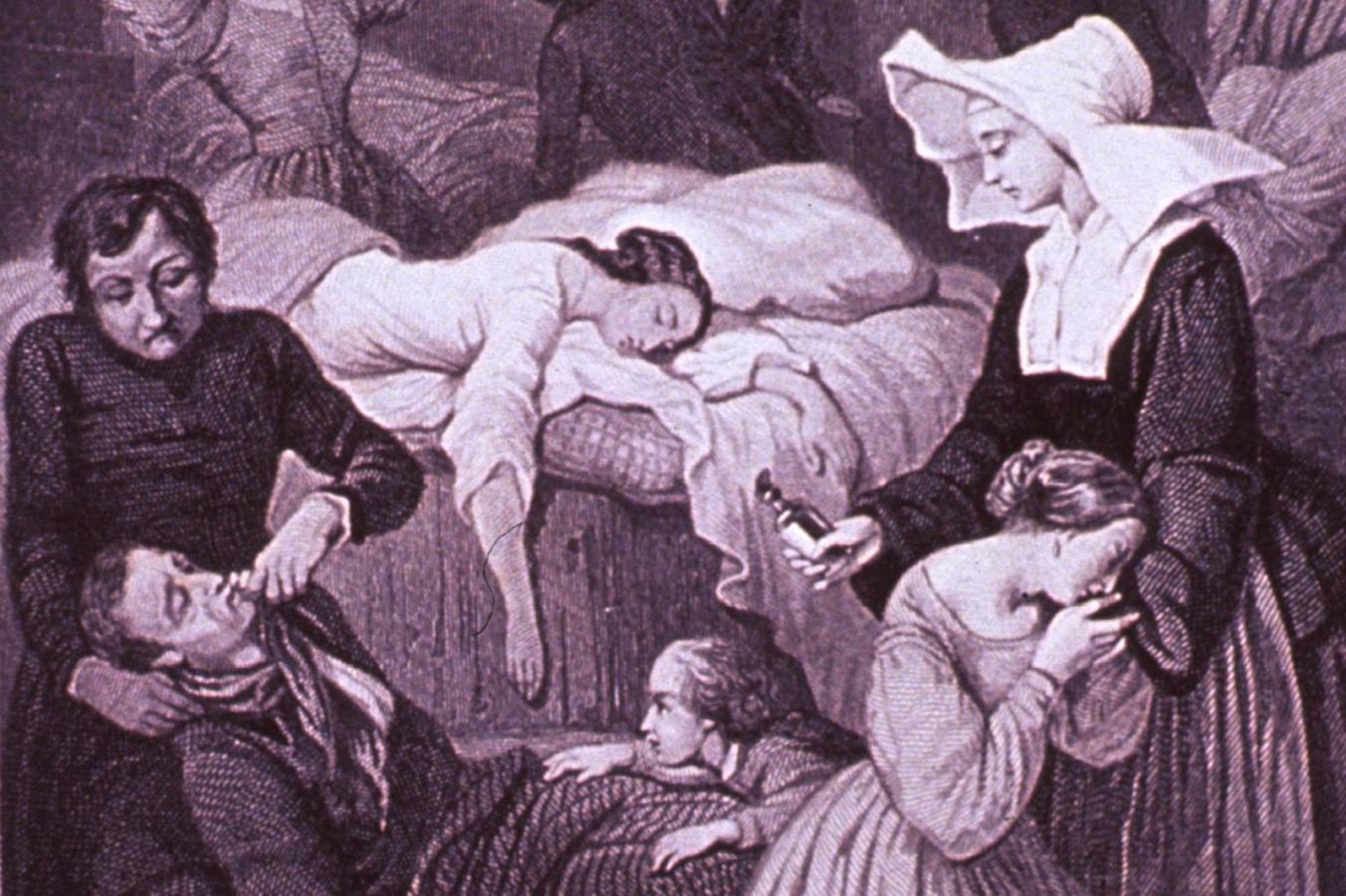Rabbi Israel Salanter was a revered talmudic genius and the founder of the Mussar movement, a 19th century movement that encouraged the practice of character refinement and personal ethical development. But he was also known for his unique response to a global health pandemic — the worldwide cholera outbreak that claimed untold lives across multiple continents between 1846 and 1860.
Rabbi Salanter was a young scholar when the epidemic struck Vilna, the heart of Jewish Lithuania, in the summer of 1848. Rabbi Dov Katz relates in his work The Mussar Movement that Salanter focused all his energies on saving lives during this epidemic. He involved himself in relief efforts and actively enlisted his yeshiva students to go out and care for the ill. He even rented a building to serve as a 1,500-bed hospital and raised funds to care for the ill.
Jewish law permits the violation of all but three sins in order to save a life, and Salanter actively encouraged people to do so if they needed — especially the laws of Shabbat and keeping kosher. Salanter’s son later reported that the only time he ever saw his father angry was when another rabbi challenged the public violation of Shabbat by Salanter’s students. Salanter also advocated relaxing certain mourning laws to avoid weakening mourners and making them more susceptible to illness.
One of Salanter’s central themes during this period was the requirement to obey the orders of doctors. For example, when doctors prohibited eating fish, Salanter declared that anyone who did so anyway might as well eat pork. But perhaps the most dramatic incident of this period occurred during the High Holidays of 1848. Salanter felt that fasting on Yom Kippur would put lives in danger and that it would desecrate Judaism if Jews died trying to observe the fast. Though he held no official role in the Vilna rabbinate, on the eve of Yom Kippur he placed proclamations in all the synagogues telling people not to fast, to shorten synagogue services, to take walks, and to help each other in all ways.
With your help, My Jewish Learning can provide endless opportunities for learning, connection and discovery.
This was itself a radical move, but Salanter still worried it was not enough and people would not follow his instruction. So on the morning of Yom Kippur, Salanter walked to the front of the synagogue with wine and cake, made kiddush and ate in front of everyone. The people were in shock, with one member publicly challenging him as to why he was issuing edicts in Vilna instead of the official rabbinate. Other versions of the story say that an elder of the Vilna rabbinate publicly disavowed Salanter’s sweeping decision, insisting that each person decide the question for themselves with their doctor.
But Salanter was not cowed. According to Katz, he remained in place until everyone in the synagogue had eaten. According to some accounts he then proceeded to other synagogues in town to encourage worshippers to eat. (Historians consider the story an exaggeration and view sources which say Salanter worked with the official rabbinate to issue a joint ruling as more authoritative.)
Whatever the particulars, there’s no doubt that Salanter paid a price for his actions. The Jewish community was in an uproar. Salanter tried to assert his authority by delivering a complicated talmudic discourse that showed his brilliance, but it’s unclear how well that worked. According to one historical account, Salanter no longer felt welcome in Vilna and was forced to leave a short while later.
But Salanter remained proud of that moment for the rest of his life. Lives had been saved, he believed, and there was no reason for regret. In a letter he wrote some years later, during another wave of the cholera epidemic, he reiterated his basic stance on all these points.
Now that this disease is abroad in the land – Heaven deliver us, here also – this is the teaching for man, and the way of common sense: not to fear it at all, for what is man’s life in all its aspects, for who knows if one’s path is proper? One must also heed the instructions of the physicians, in light of whose words we shall walk, even by law [the Torah], and to establish the life of this world for good and for betterment. For experience has taught us that in days past, when the disease spread greatly, that whoever took upon himself the burden of the doctor’s orders in his diet, etc… was free of the signs of the disease – may Heaven protect us. And… one is not to worry and to complain about the precious soul which has been relieved of its suffering in this life of vanity, in order to go on the straightforward path to its haven…(Ohr Yisrael, letter #22, Translation in Etkes, Israel Salanter, pg. 169)



